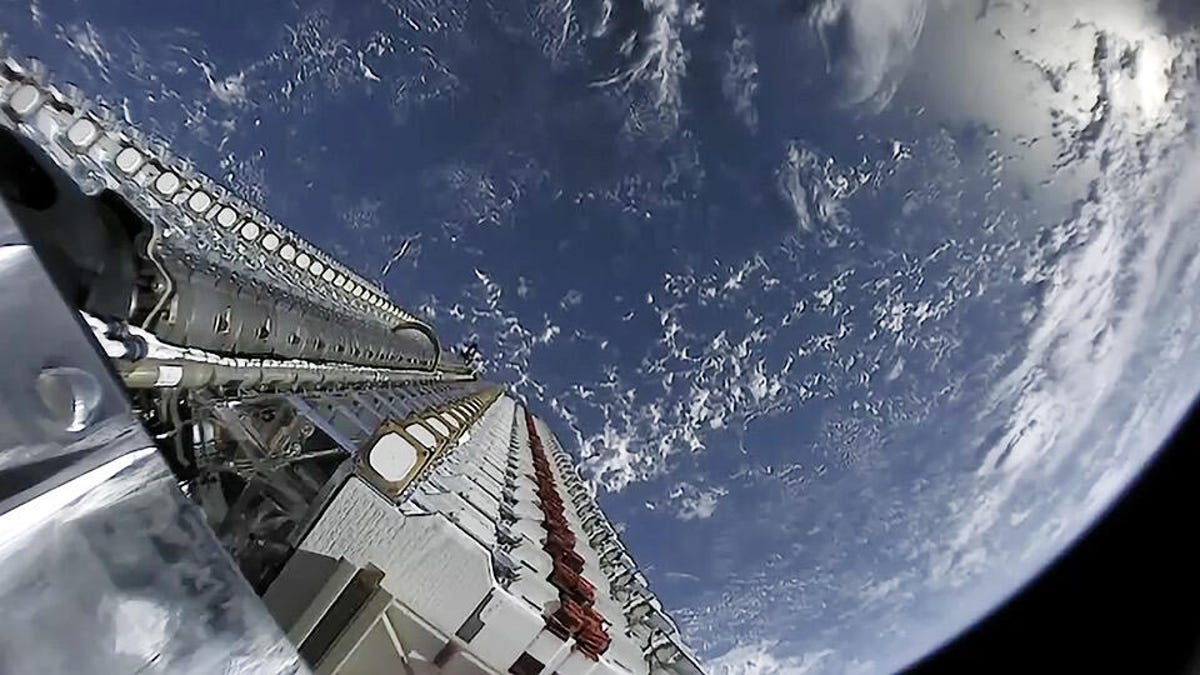Starlink recruits beta testers for 'Better Than Nothing' satellite broadband service
SpaceX has sent 15 batches of routers into orbit, and now says it's ready to start signing up paying customers.

A stack of SpaceX Starlink satellites being deployed in orbit.
Being among the first to test Starlink, SpaceX's much anticipated new satellite broadband service, will require a bit of an upfront investment.
According to emails shared with CNET and also posted online, the company is offering a "Better Than Nothing" beta test to select people who have registered their interest via the Starlink website.
"As you can tell from the title, we are trying to lower your expectations 😃," the email reads.
According to the email, to get in the door requires $499 up front for the cost of a router and phased array antenna to connect to the service. After that, the monthly subscription cost is $99.
The email also explains that actual results may vary, with data speeds from 50 Mb/s to 150 Mb/s and latency from 20 milliseconds to 40 milliseconds.
"As we launch more satellites, install more ground stations and improve our networking software, data speed, latency and uptime will improve dramatically. For latency, we expect to achieve 16ms to 19 ms by summer 2021."
The equipment costs and monthly subscription fees are comparable to what traditional satellite providers such as Viasat and HughesNet charge, but the legacy providers also offer a monthly equipment lease that cuts down on upfront costs.
The big thing is that Starlink's speeds could be up to six times faster than what older satellite companies offer with significantly lower latency due to Starlink's satellites being in low-earth orbit rather than the far more distant geosynchronous orbit.
The most important question for many long-suffering satellite internet customers will be whether Starlink comes with data caps that often rule the lives of Viasat and HughesNet subscribers. So far, SpaceX has made no mention of such caps.
It's not yet clear how soon new beta testers can expect to receive their equipment. Meanwhile, Starlink apps appeared this week in the Google and Apple app stores.
SpaceX didn't immediately respond to a request for comment.

